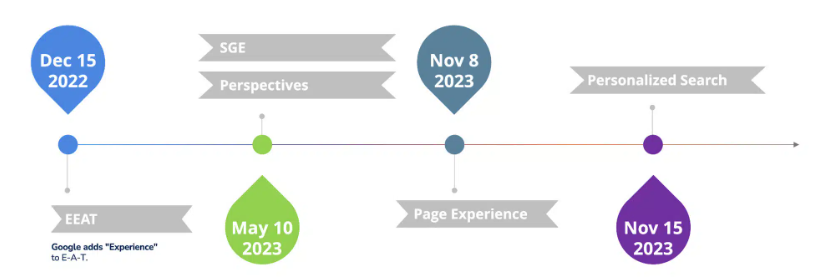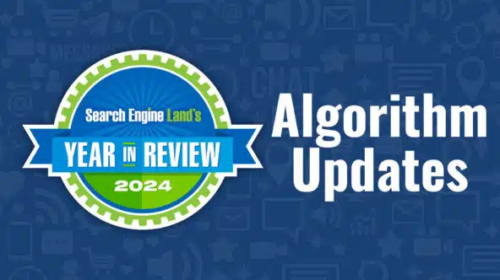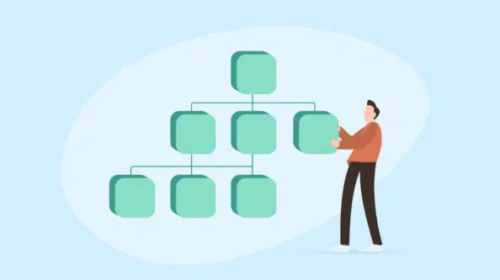7 key 2024 search trends to watch and 3 top priorities
Stay ahead in these changing times. These transformative changes will likely have the biggest impacts in 2024.
In 2023, we witnessed the rise of AI-powered search and significant evolution of the SERPs with the arrival of Google’s Search Generative Experience, as well as Bing Copilot (formerly Bing Chat).
Google’s new AI model, Gemini, is its largest and most advanced, capable of understanding text, code, audio, images and video. We expect to see its full potential unleashed on Google Search in 2024.\
Meanwhile, Google continues to stress the importance of quality and experience while using AI models as a key component of ranking and re-ranking. Google released several algorithm updates this year around the quality of content and page experience.
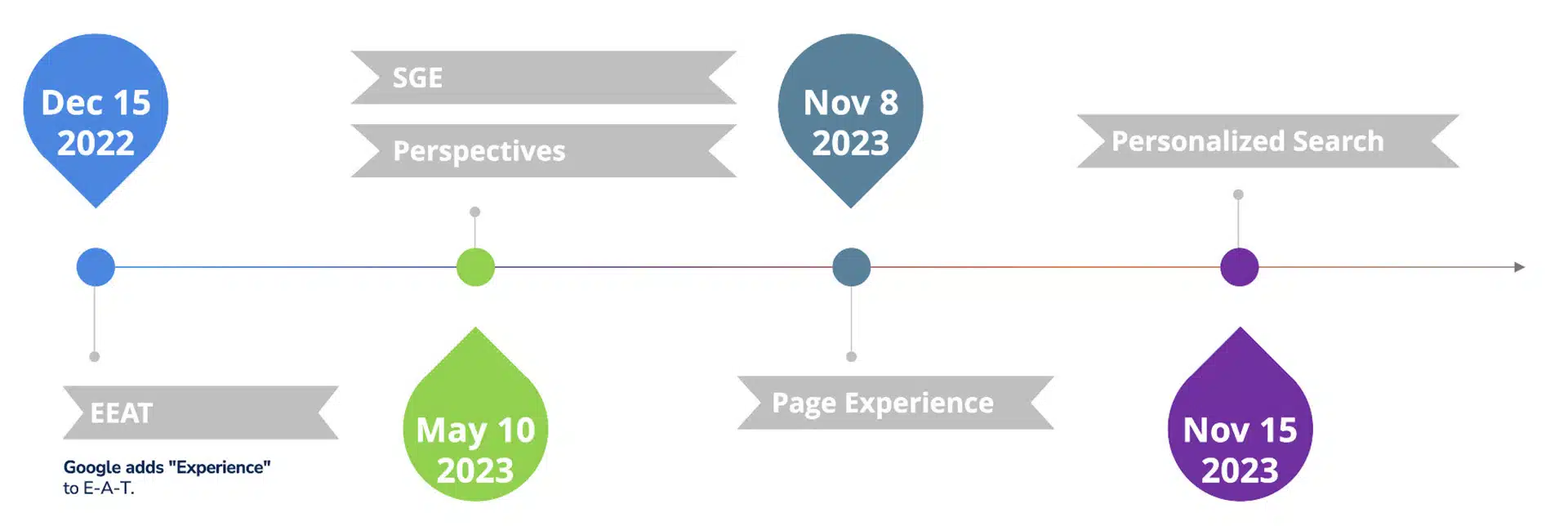
Using AI is acceptable to Google for generating content as long as it is highly relevant and offers value. Still, don’t expect thin, AI-generated content with little or no value to easily earn long-term SERP visibility.
A topical, entity-first strategy is now a competitive advantage. Strengthening the technical foundation of your platform to improve discovery and experience is critical.
Bottom line: futureproofing digital presence for AI search should be a major priority for all brands in 2024.
Read on to discover seven key trends that should influence your roadmap in 2024, as well as three must-haves for success.
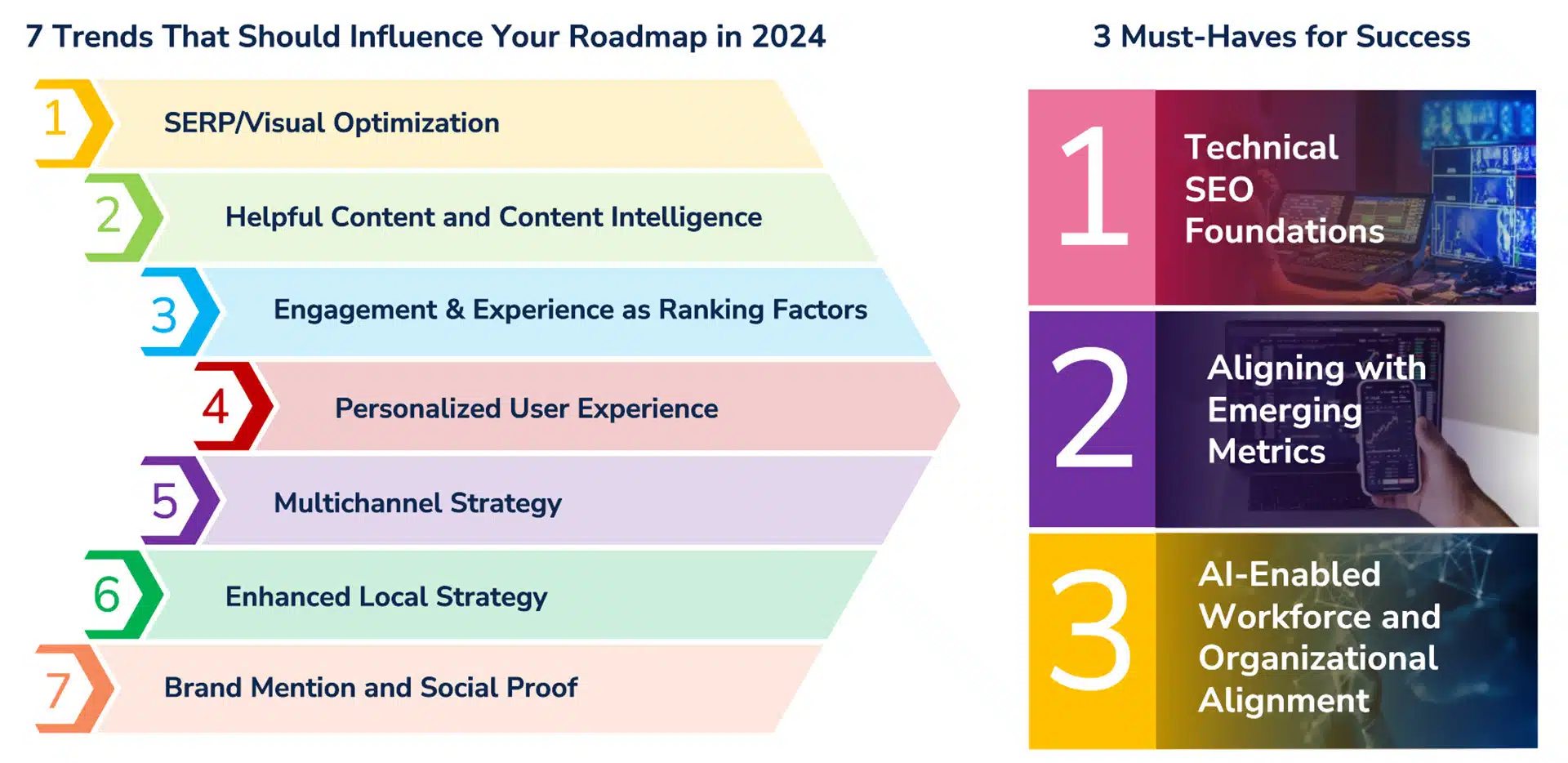
7 trends that will influence your strategic roadmap in 2024
These are the top seven trends we will notice in 2024.
1. SERP and visual optimization
In Google SGE and the SERPs, rich results will continue to evolve. Ongoing SERP optimization will be critical as we expect zero-click results to grow due to SGE.
Want to get into the AI-generated answer (or snapshot)? Keep publishing fast-loading pages filled with relevant, helpful, valuable and unique content. Some specific areas to prioritize:
- Experiential/informational videos.
- Web stories.
- Podcasts.
- Webinars.
- Visual optimization.
- FAQ/PAA.
2. Helpful content and content intelligence
A rock-solid content strategy will be essential in 2024:
- Find and fill relevant content gaps.
- Review content performance.
- Create personalized content based on user intent and touchpoints.
- Create and optimize various types of helpful content (e.g., topical and informational, localized, visual).
You want to demonstrate high levels of E-E-A-T and publish content written or reviewed by subject matter experts or demonstrate hands-on experience.
Every search happens because someone wants or needs something. Your content should help searchers achieve goals or complete tasks. How a user interacts with your content is just as important as the content itself.
To meaningfully do this, your strategy should include creating buyer personas. Create content based on the buyer’s journey at every touch point. Survey your customers and ensure content and UX align with the strategy.

Content intelligence – knowing what type of content will perform, based on data – should become your foundation of content creation.
Several generative AI tools and plugins can quickly create content, sure, but it’s typically unclear:
- What content types will perform well.
- How to humanize content.
- How to forecast the effectiveness of a content strategy.
Establishing a data-driven approach to measure the effectiveness of content will become crucial for content creators.
3. Engagement and experience
User interactions and engagement are important factors that shape Google’s search results.
Google wants to reward expert-level content that is compelling and meets the needs of searchers.
Your goal in 2024 should be to improve the quality and experience for searchers by improving the quality of your content and experience of your digital assets.
4. Personalized experience
Google CEO Sundar Pichai said search will evolve substantively in the next 10 years. Search will be more personalized to impact users more profoundly and meaningfully.
That may be why, on Nov. 15, Google introduced a personalized search experience, including a new Follow button, to show searchers more information about what they care about directly in their search results.
You also should give your customers personalized experiences based on who they are, what they are looking for and where they are coming from.
This means a tighter integration with your CDP (customer data platform) and CRM (customer relationship management) systems to ensure a personalized experience.
Clean data, audience segmentatio, and data-driven campaigns to personalize experience are critical strategies to win in 2024.
5. Multichannel approach
Take advantage of all opportunities on what will become increasingly competitive SERP real estate with limited inventory for organic listings. That means optimizing the customer journey across various channels and content types:
- Videos.
- Images.
- FAQs.
- PAAs.
- News.
- Webinars.
Be everywhere. Be consistent.
6. Local Strategy needs to be more personalized, localized, and experiential.
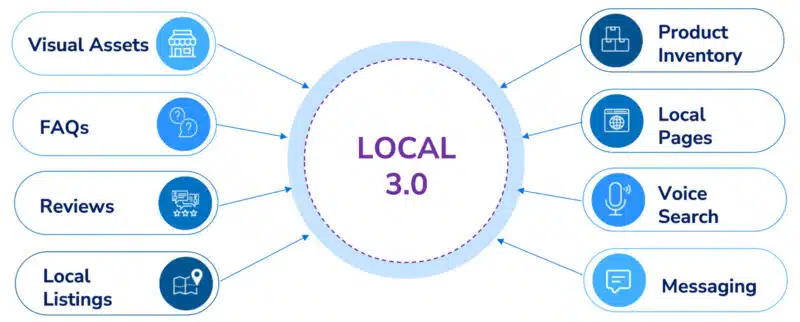
If your brand has a local presence, add localized experiences to build expertise, engagement and traffic. For destination-based content, think:
- Local posts.
- Quality images.
- Videos.
- Web stories.
Listings management alone will not be enough. You must optimize the entire local consumer journey – from your landing page to audience interactions across all channels.
7. Brand mentions and social proof
We know LLMs are trained on a variety of sources to compile results.
Understand what specific questions/topics your customers are seeking answers for, where they will get this information, and ensure we create targeted strategies.
Find ways to get/earn brand mentions and citations from well-respected sources and relevant influencers (ideally with a substantial social following).
3 priorities for staying ahead in changing times
With all the changes taking place, staying ahead of the curve and the changing times is imperative. “Keep up, or you will be left behind.”
Here are three main priorities to help you stay ahead.
1. Technical Infrastructure which Enables Integrated, Robust Experience
Having a solid technical foundation is a must-have for 2024. A solid technical foundation ensures robust experience.
This includes the ability to centralize all your data to build meaningful dashboards and customer journey insights, component-based architecture that enables one-click personalized and omnichannel experiences, security infrastructure, fast server response (CDN), and integrations.
Dig deeper. Future Proofing Digital Experiences in AI First Semantic Search.
2. Embracing New Metrics
As AI serves answers in the search results, traffic is likely to decline. As more content is served within search results from Google properties, organic listings will continue to get more fragmented and will be pushed lower down on the page.
Traditional metrics like rankings will mean even less than they do today.
New metrics are emerging. Brands must consider adopting these new measures of success, such as:
- Rich snippet visibility.
- Pixel height and width.
- Impressions.
- Clicks.
- On-site engagement.
- Conversions.
3. AI-Enabled Worker and Organization Alignment
By learning how to apply AI in your daily life, you can become more efficient and better in creating content outlines, image creation, custom images, summaries, designs, and so many other places where AI should be used.
- “A common fear has been around since the advent of AI – with many people asking ‘Will AI take my job?’ Not to worry! With the current technology, there is no actual intelligence in the AI, and it’s not coming for your job. However, there is a key need to adapt because AI can be used to do your job better,” according to Eric Enge.
Are you ready for 2024?
Smart organizations in 2024 will:
- Integrate channels to enable intelligent decisions.
- Connect customer journeys across touchpoints when creating an omnichannel strategy.
- Measure the right metrics, including zero-click and AI results.
- Prioritize training across the organization.
Some individual and organizational transformations will be needed. For example:
- Content writers should evolve into content strategists.
- Developers should create exceptional experiences.
- Analytics teams should become business analysts.
Get familiar with AI. Learn to use large language models for forecasting, content generation and analyzing user behavior.
There are many ways to use AI to simultaneously improve your day-to-day efficiency and the quality of your work.
AI-enabled workers and organizations will have the advantage. They will be more valuable than those that haven’t learned and leveraged AI tools.
Use the trends and strategies from this article to help decide what to prioritize and why and how to align organizations cross-functionally.


